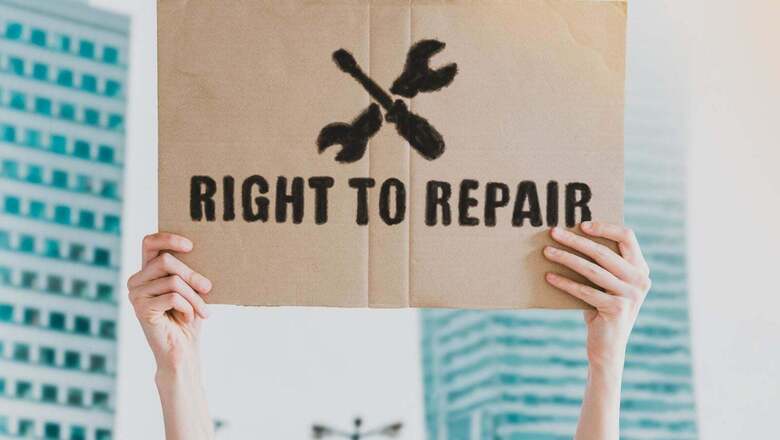
views
You may not have to burn a hole in your pocket to replace your mobile phone or tab soon after it malfunctions, courtesy the ‘Right to Repair’. Now, manufacturers will not be able to artificially or deliberately restrict repair of these items, thereby forcing you to go for a new model. And mobile phones or laptops are not the only products we are talking about.
In a significant move that is expected to strengthen the hands of consumers, bolster efforts for an environment friendly lifestyle and generate employment, the Department of Consumer Affairs has set up a committee to develop a comprehensive framework on the ‘Right to Repair’.
In its first meeting on July 13, the panel identified different sectors such as farming equipment, mobile phones and tablets, consumer durables, automobiles and automobile equipment that could be covered under the right. The panel aims to stem the “culture of planned obsolescence” by manufacturers.
Planned obsolescence is a system, the government said, whereby “the design of any gadget is such that it lasts a particular time only and after that particular period, it has to be mandatorily replaced”. Issues of avoidance by companies to publish manuals that help users to make repairs, proprietary control over spare parts, monopoly over repairs came up for special attention in the panel’s meeting.
‘Right to Repair’ is a growing phenomenon across the globe. In the US, for instance, the Federal Trade Commission has directed manufacturers to remedy unfair, anti-competitive practices and asked them to make sure that consumers can make repairs, either themselves or by a third-party agency.
UK has a law that mandates all electronic appliance manufacturers must provide consumers with spare parts for repair either by themselves or at the local repair shops. Australia has free “repair cafes”, where technicians volunteer to share skills for free. And the European Union has made it legally mandatory for manufacturers to provide parts of products to professional repairmen for a period of 10 years. The new panel aims to learn from the best practices internationally and adapt them for Indian markets.
In India, ‘Right to Repair’ is consonant with Prime Minister Narendra Modi’s idea of ‘Lifestyle for Environment’ (LiFE) which lays emphasis on value of reuse and recycle. “A product that cannot be repaired or falls under planned obsolescence, i.e. designing a product with an artificially limited useful life, not only becomes e-waste but also forces the consumers to buy new products for want of any repair to reuse it,” the government said. The signal to manufacturers is clear — don’t restrict repair of your product and force the consumer to buy a new model.
Nidhi Khare, Additional Secretary, Consumer Affairs, is the chair of the committee that includes Justice Paramjeet Singh Dhaliwal, former Judge of Punjab and Haryana High Court; Prof (Dr) GS Bajpai, former president of State Consumer Dispute Redressal Commission, Punjab; Prof Ashok Patil, Vice Chancellor, Rajiv Gandhi National University of Law, Patiala; and representatives from various other stakeholders like ICEA, SIAM, consumer activists and organisations.
Read all the Latest News, Breaking News, watch Top Videos and Live TV here.




















Comments
0 comment